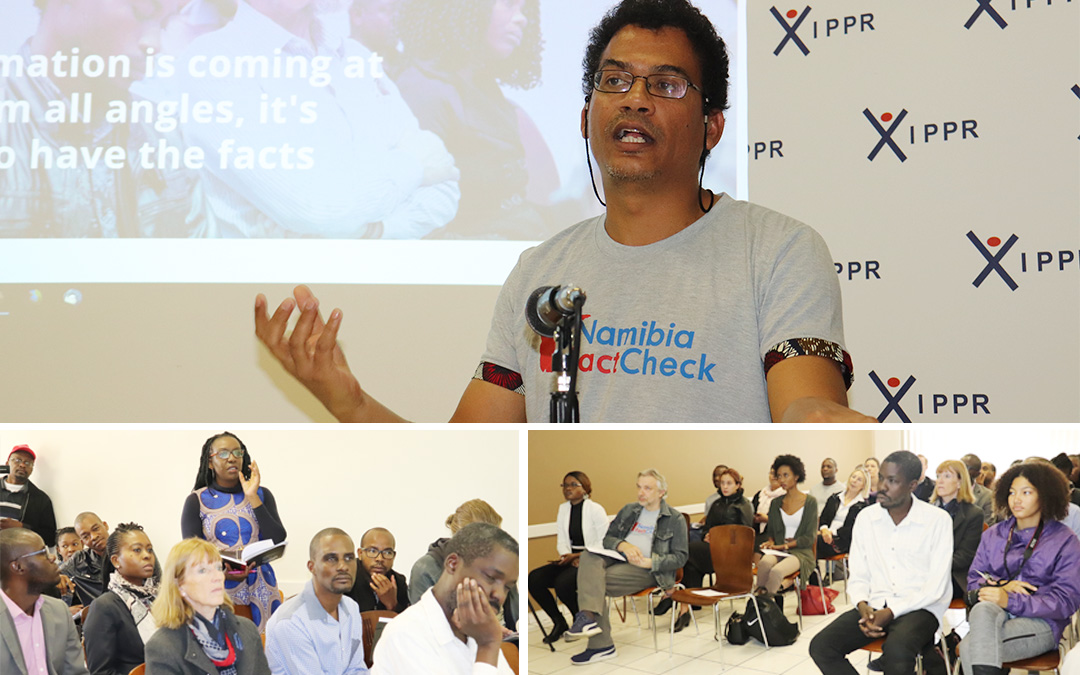The Institute for Public Policy Research (IPPR) has launched Namibia’s first fact-checking initiative, Namibia Fact Check, an initiative that aims to verify public statements and media reports. The IPPR is a member of the ACTION Namibia Coalition, a local network of civil society organisations that collectively promote the right to access to information.
Taking to the podium at the launch, IPPR director Graham Hopwood, said that the website will mainly be for fact-checking statements made by politicians, especially since it’s in election year in Namibia. Hopwood further noted that the fact-checking website will also check for the accuracy of news reports, an act he said may create a “healthy point of tension between fact-checkers and media”.
The website comes at a time when there is a rise in disinformation both locally, and globally. “There are commercial interests in using fake news … advertisers use click bait on websites, which promotes disinformation” Hopwood said. He further explained that advertisers sometimes use captivating and misleading headlines to attract people to website where they will be bombarded with adverts. To add salt to the wound, Hopwood stated that there is a rise in the number of fake-fact checkers, so when one is fact-checking, the authenticity of the fact-checkers also needs to be checked.
With regard to disinformation online, Hopwood urged the public to check their own confirmation bias and avoid sharing (unverified) information that resonates with their views on an issue. “There seems there’s a concerted effort to create a world where there is so much misinformation that people literally do not know what to believe, and then opt for the most prevalent narrative,” Hopwood lamented.
Frederico Links who is one of two people who are working on the project, shared similar sentiments about the tensions that the fact-checking website might have with traditional media was IPPR research associate, who was one of the two people who worked on the project. Links said that that the increase of fact-checking initiatives may cause tension with traditional media because comes at a time when there seems to be a decrease in fact-checking in journalism. Links alluded to the fact that IPPR does not want to make the same mistake of rushed fact-checking by saying, “We will not rush (fact checking) and become part of contributing to an environment of public confusion”. He concluded by stating that they (Namibia Fact-checkers) are not immune to mistakes and he encouraged the public inform them if any information is misquoted by them.
The website is live and members of the public were invited to send in articles or reports that they would like to be fact-checked.
Namibia Fact Check is supported by the Hanns Seidel Foundation Namibia.

